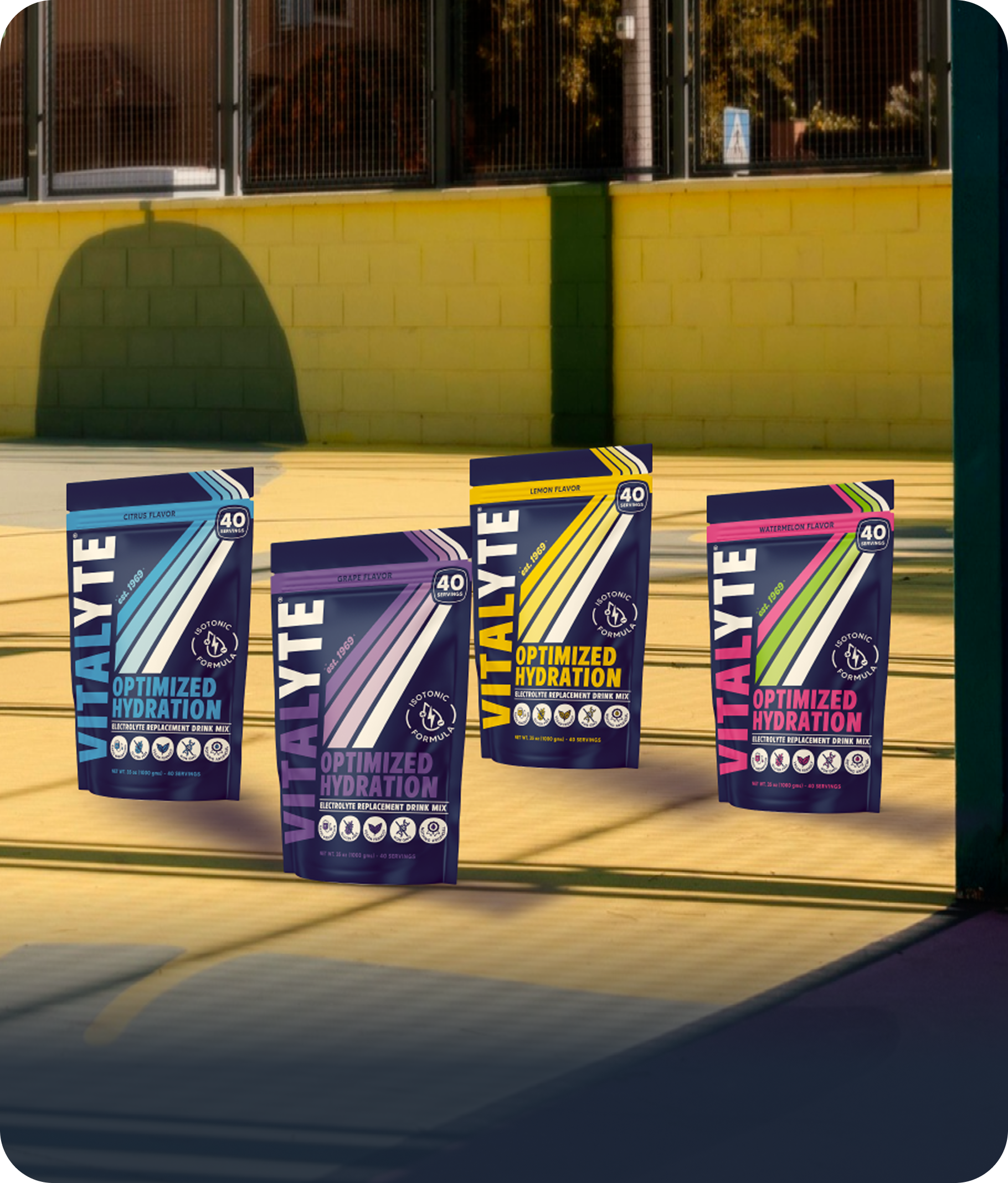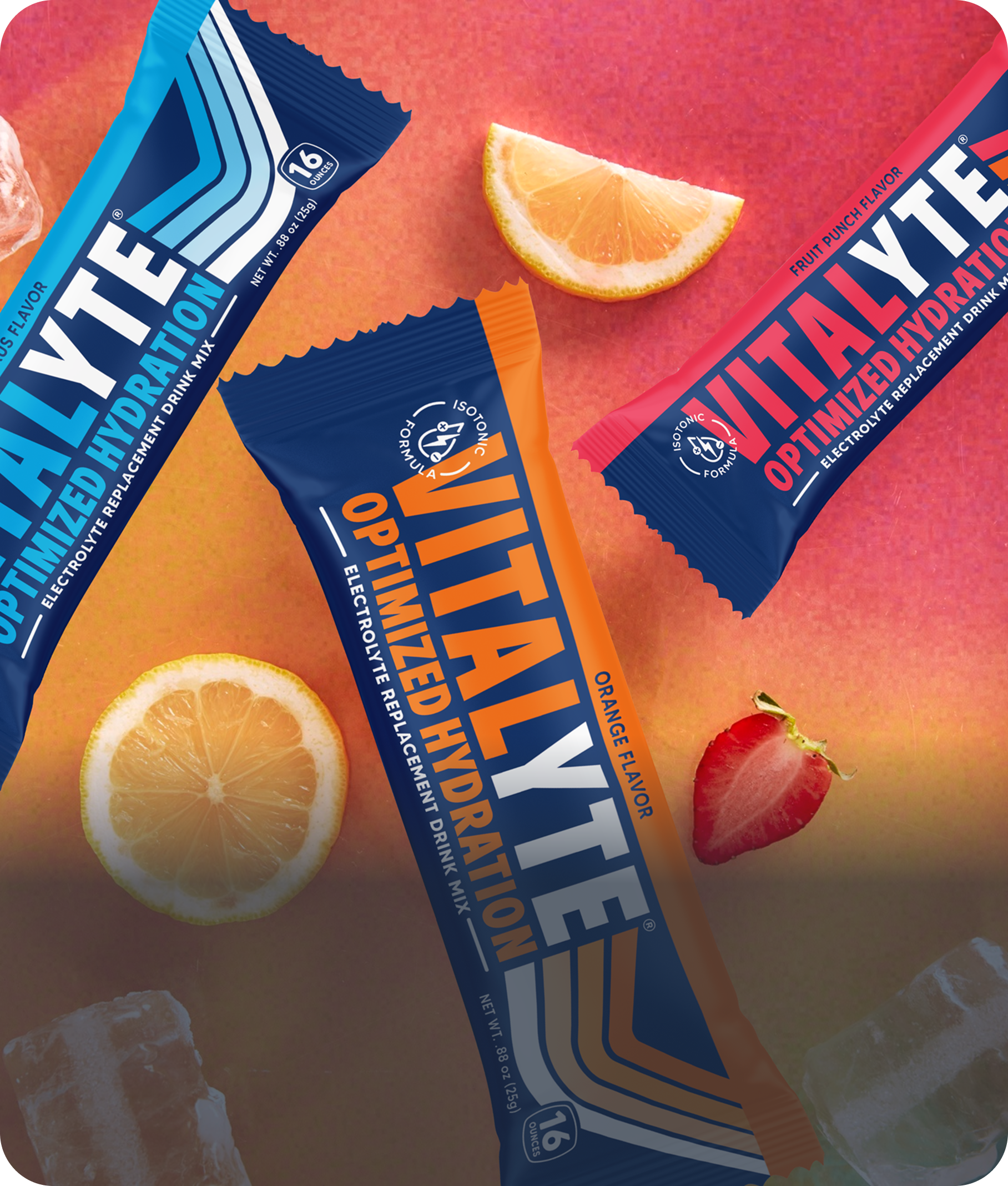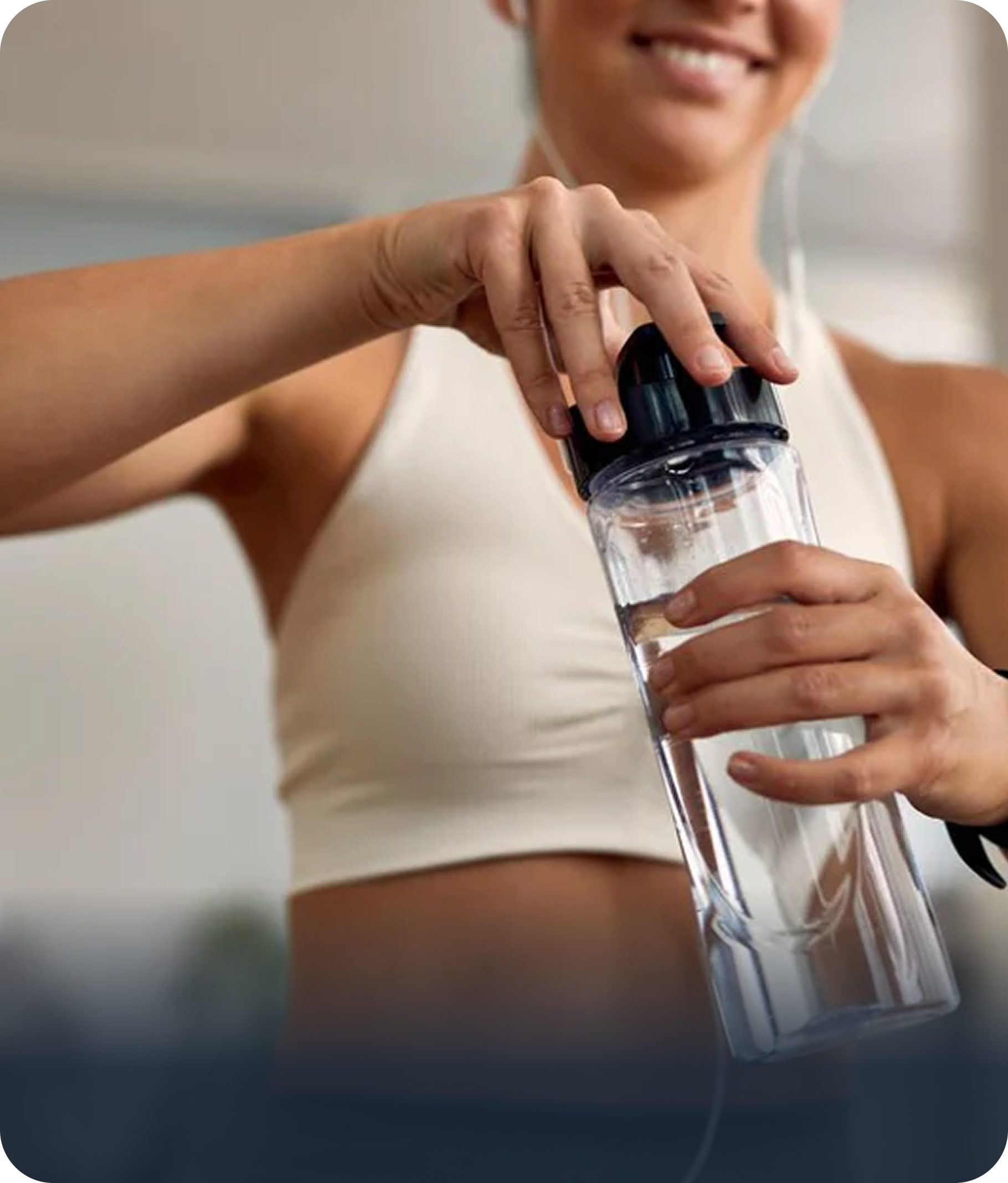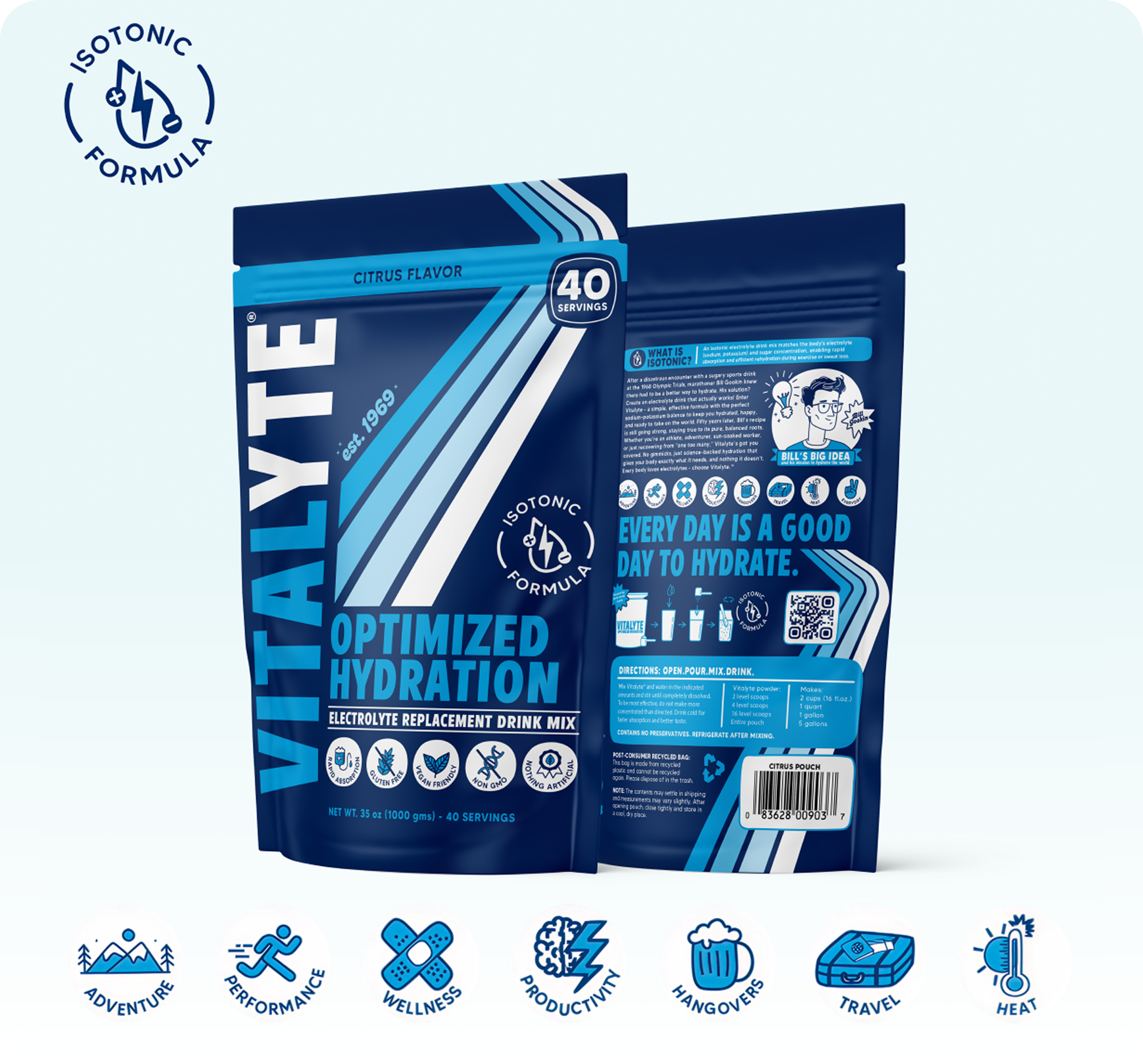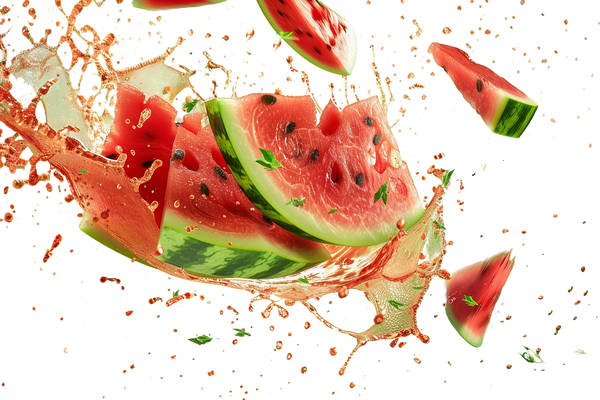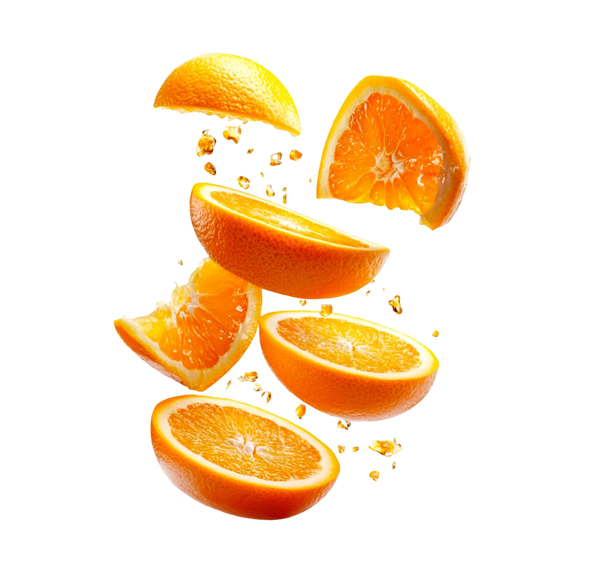Hydration Unveiled: The Ultimate Guide to Isotonic Sports Drinks
Share

Introduction
Staying hydrated during exercise is not just beneficial—it's essential. Proper hydration supports optimal performance, helping you to achieve your fitness goals effectively and safely. A critical player in the hydration game is isotonic sports drinks.
Isotonic sports drinks offer a powerful blend of fluids, electrolytes, and carbohydrates, all tailored to replenish what your body loses during physical activity. With a concentration akin to human blood, these drinks aid in fluid absorption while providing vital nutrients your body craves during strenuous exercise.
This guide aims to demystify isotonic sports drinks, empowering you to understand their role in hydration and how they can enhance your athletic performance. From defining what isotonic sports drinks are to exploring their benefits, and offering tips on choosing and using them wisely—this guide serves as a comprehensive resource for athletes and fitness enthusiasts alike.
What You'll Learn
In this guide, we will cover:
- The definition of isotonic sports drinks
- How isotonic sports drinks help with hydration
- The benefits of isotonic sports drinks
- Tips for selecting the right isotonic sports drink
- Guidelines on when and how to use isotonic sports drinks effectively
We will also briefly discuss other types of sports drinks available and the importance of plain water in meeting hydration needs during exercise.
Understanding the causes of dehydration is crucial for maintaining proper fluid balance—especially for those engaging in physical activities. Whether it's due to physical exertion, heat stress, illness or even under cool conditions without much effort, dehydration can have serious consequences. Let's start the journey by understanding hydration in detail.".
Understanding Hydration
Hydration is crucial for maintaining optimal performance during exercise. As you exert energy, it's important to keep your body hydrated so that your systems can work efficiently. When you exercise, your body temperature rises and you start sweating to cool down. While this is necessary, it also leads to the loss of fluids and electrolytes that need to be replenished in order to sustain your performance levels.
Why Hydration Matters
Proper hydration has a direct impact on various aspects of your body's functioning:
1. Muscle function
Adequate hydration helps prevent muscle cramps and fatigue.
2. Cardiovascular health
Fluids help maintain blood volume and pressure, ensuring that oxygen and nutrients are efficiently delivered throughout the body.
3. Thermoregulation
Proper hydration is essential for regulating body temperature.
Signs of Dehydration
It's important to be aware of the signs of dehydration, especially when you're physically active. Some common symptoms include:
- Thirst
- Dry mouth
- Headaches
- Dizziness or lightheadedness
- Decreased urine output
If you experience any of these symptoms, it's crucial to address your fluid intake immediately. In some cases, dehydration can lead to more severe conditions such as heatstroke or hyponatremia.
Tips for Staying Hydrated
To ensure you remain hydrated, consider the following tips:
- Drink water regularly: Don't wait until you're thirsty; sip on water throughout the day.
- Incorporate electrolytes: During intense or prolonged exercise, it may be beneficial to consume fluids that contain electrolytes (such as sodium and potassium) to replace what's lost through sweat.
- Monitor urine color: Aim for pale yellow urine, which indicates proper hydration.
- Pay attention to weather conditions: Hot and humid environments can increase fluid loss, so adjust your intake accordingly.
- Listen to your body: Everyone's hydration needs are different, so pay attention to how you feel and adjust your fluid intake accordingly.
Staying properly hydrated isn't just about preventing illness; it's about optimizing your health and performance. Keeping a balanced fluid level can support your immune system—a key factor for anyone looking to maintain an active lifestyle.
Remember, the goal is to match fluid intake with losses to maintain a harmonious fluid balance. Achieving this will support overall body function and performance during physical activities.
If you're wondering why some people seem to get sick more often than others, it's worth understanding the factors that contribute to illness susceptibility. While we often attribute getting sick to external factors like exposure to germs, there are internal conditions that play a role as well. Factors such as stress, poor nutrition, lack of exercise, and inadequate hydration can weaken the immune system and make us more susceptible to illness. So, maintaining proper hydration is not only important for exercise performance but also for supporting overall health and immunity.
For those who love running or are considering taking it up, finding your running stride is essential for an enjoyable experience. It involves finding the right rhythm and form that suits your body, which can take time. However, with these 5 tips - including being creative with your routine, hydrating properly, adopting a healthy diet, and giving yourself rewards - you can get
Exploring Different Types of Sports Drinks
When you're being active, it's important to stay hydrated. There are different types of sports drinks that cater to different hydration needs, and knowing what makes each one unique can help you make the right choice.
Hypotonic Drinks
Definition and Characteristics: Hypotonic drinks are made to have less salt and sugar than your body's own fluids. This means they're not as concentrated as your blood plasma, so your body can absorb them faster.
- Typically contain fewer carbohydrates (usually less than 4% carbohydrate content)
- Have a lower sodium concentration than isotonic or hypertonic drinks
Benefits of Faster Absorption: Hypotonic drinks offer several advantages for staying hydrated during exercise:
- Quickly rehydrate: These drinks replace fluids lost through sweat without giving your body too much extra sugar and salt, which helps prevent dehydration.
- Provide steady energy: Even though they have less carbohydrate, the fast absorption gives you a constant source of energy during longer periods of low-intensity exercise or activities.
If you're planning to stay active in the heat, especially during summer sports, a hypotonic drink like Vitalyte's electrolyte mix can help keep you hydrated without overloading your system with extra carbs and electrolytes that might not be necessary.
For athletes involved in endurance sports or anyone who needs a quick fluid replenishment without the extra energy boost from higher carbohydrates, hypotonic drinks are a great choice. They allow for faster absorption, helping you rehydrate more efficiently.
For those looking for a naturally-flavored option that aids hydration, consider trying Vitalyte's natural lemon electrolytes drink. Its refreshing taste and balance of essential electrolytes make it ideal for recharging during or after exercise.
However, it's important to remember that staying hydrated involves more than just drinking fluids. You also need to consider how quickly your body can absorb those fluids to maintain optimal hydration levels. Hypotonic drinks serve this purpose well for endurance athletes or anyone who needs a quick fluid replenishment without the extra energy boost from higher carbohydrates.
When choosing a sports drink, it's crucial to pick one that fits your needs. As you learn more about isotonic and hypertonic options, think about what you require for hydration and performance:
- The type of activity you'll be doing
- How long you'll be active
- The intensity of your workout
- The environmental conditions you'll be in
By considering these factors, you can determine which type of sports drink will best support your goals.
2. Isotonic Drinks (Including Isotonic Sports Drinks)
Isotonic drinks, including isotonic sports drinks, offer a balance of fluids, minerals, and energy supply. With a similar concentration to blood (6-8% carbohydrates), these beverages are designed to match your body's natural fluid balance. This similarity aids in efficient fluid absorption, making isotonic drinks an excellent hydration choice during physical exertion.
Definition and Characteristics of Isotonic Drinks
Isotonic drinks contain particle concentrations equivalent to bodily fluids, mainly blood. This balance facilitates steady hydration and energy replenishment without disrupting the digestive system. Carbohydrate content in isotonic drinks typically ranges from 6 to 8%, with an osmolality close to the body's natural levels.
Fluid Absorption
The composition of isotonic drinks is integral for their fast absorption rate. Because their concentration mirrors that of your blood, these drinks can rapidly enter your bloodstream and deliver hydration where it's needed most during workouts.
Benefits for Athletes' Performance and Recovery
Isotonic sports drinks do more than just quench thirst; they support your performance and recovery. These beverages replenish lost fluids and electrolytes while providing a quick energy source. This dual action helps maintain stamina during rigorous exercise and aids post-workout recovery by restoring fluid balance.
When choosing your hydration source for athletic activities, consider isotonic sports drinks like the ones offered in Vitalyte's Variety Stick Pack for their balanced composition and rapid absorption capabilities. These convenient single-serving sticks come in a variety of refreshing flavors, making it easy to stay hydrated during your workouts or even on-the-go. However, remember that like all good things, moderation is critical.
In the next section, we'll delve into hypertonic drinks - another type of sports drink with a unique composition catering to specific fitness goals.
3. Hypertonic Drinks
After understanding hypotonic and isotonic drinks, it's time to learn about another important type of sports drink: hypertonic drinks.
What are Hypertonic Drinks?
- Hypertonic drinks have a higher concentration of carbohydrates (usually more than 8%) compared to your body's natural fluids and isotonic drinks.
- This higher concentration leads to a higher osmolality, which refers to the number of particles in a solution.
Role of Hypertonic Drinks
- Not for Hydration: Unlike hypotonic and isotonic drinks, the main purpose of hypertonic drinks is not to hydrate your body.
- Energy Replenishment: These drinks are typically consumed after exercise to quickly restore glycogen stores, thanks to their high carbohydrate content.
- Use with Caution: Due to their high osmolality, hypertonic drinks can actually slow down rehydration and should be used carefully during physical activity.
When to Choose Hypertonic Drinks
- Post-Exercise: If you're looking for a way to refuel after a workout and energy replenishment is your primary goal, then hypertonic drinks can be beneficial.
- Endurance Activities: For endurance athletes who need a steady release of energy over longer periods, the high carbohydrate content in these drinks can provide a significant boost.
Limitations of Hypertonic Drinks
- Slower Rehydration: Because of their high osmolality, hypertonic drinks may not be as effective as hypotonic or isotonic options when it comes to rehydrating quickly.
- Choose Wisely: If rapid hydration is what you need, it's better to opt for hypotonic or isotonic beverages instead.
Now that we've covered the basics of hypertonic drinks, let's move on to explore other beverages that can support your hydration strategy during workouts, like those discussed in The Gymnast Diet, which provides valuable insights into healthy recipes and diet for any gymnast's success. Additionally, incorporating practices such as yoga for runners into your workout routines can greatly enhance your performance by improving flexibility and reducing the risk of injuries.
4. The Role of Water and Other Beverages
Water is the foundation of hydration, serving many important functions in the body. It helps regulate body temperature, cushion joints, and deliver nutrients. When you exercise, you lose fluids through sweat. Drinking water can help replace those lost fluids after mild to moderate physical activity.
However, for intense workouts lasting more than an hour, relying only on water may not be sufficient. This is where specialized drinks like hypotonic , isotonic, and hypertonic beverages come in handy.
Understanding Sports Drinks
These sports drinks are specially formulated to improve hydration and replenish electrolytes lost during intense exercise. They come in three main types:
- Hypotonic Drinks: These have a lower concentration of electrolytes and carbohydrates compared to your body's fluids. They're quickly absorbed and can be helpful for rehydration during shorter workouts.
- Isotonic Drinks: With a similar concentration of electrolytes and carbohydrates as your body's fluids, isotonic drinks are designed for quick absorption and are suitable for most exercise sessions. Natural Fruit Punch Electrolyte Drink On The Go Stick Pack is a great example.
- Hypertonic Drinks: These have a higher concentration of electrolytes and carbohydrates compared to your body's fluids. They're absorbed more slowly and are typically used for longer duration activities or as a post-workout recovery option.
Exploring Other Hydrating Options
While sports drinks are popular among athletes, there are other beverages that can also provide hydration benefits:
- Coconut Water: Known as nature's sports drink, coconut water naturally contains electrolytes like potassium and sodium which are crucial in maintaining fluid balance in the body. It also provides carbohydrates that can fuel your workout.
- Fruit Juices: Fruit juices can be a good source of fluid and carbohydrates for energy. However, they often contain simple sugars that can cause spikes in blood sugar levels and should therefore be consumed in moderation.
Understanding Hydration Levels
It's important to note that not all beverages contribute equally to hydration. Some drinks like coffee and alcohol have diuretic properties which can actually dehydrate you further.
When it comes to choosing the right drink for rehydration during exercise, consider the following factors:
- The intensity and duration of your workout
- Weather conditions
- Your personal sweat rate
Based on these factors, you can make an informed decision on whether to opt for water, sports drinks, or other hydrating beverages like coconut water or fruit juices.
Remember: select what works best for you.
In our next section, we'll take a closer look at isotonic sports drinks and discuss key factors to consider in order to enhance your performance during exercise.
Choosing and Using Isotonic Sports Drinks Wisely
Isotonic sports drinks are a popular choice for optimizing hydration and enhancing athletic performance. These drinks are specifically designed to support nutrient absorption during high-intensity activities, making them beneficial for athletes. However, it's important to choose and use isotonic sports drinks wisely based on your individual needs and preferences.
Key Considerations for Choosing the Right Isotonic Sports Drink- Taste Preference:
- Personal Enjoyment: You're more likely to drink sufficient fluids if you enjoy the taste, so find a flavor that appeals to you.
- Palatability: The taste can affect stomach comfort during exercise; a flavor that sits well might prevent gastrointestinal discomfort.
- Electrolyte Composition:
- Balanced Electrolytes: Look for a drink with sodium, potassium, calcium, and magnesium to replace what is lost through sweat.
- Matched to Sweat Loss: If you tend to sweat profusely or have salty sweat, choose a drink with higher sodium content.
- Carbohydrate Concentration:
- Energy Needs: Carbohydrates in isotonic drinks provide energy; 6-8% carbohydrate concentration is optimal for many athletes.
- Sustained Performance: A proper carbohydrate balance helps maintain blood glucose levels, fueling longer periods of exertion.
- Label Transparency and Ingredient Quality:
- Clear Labeling: Ensure the drink clearly lists its ingredients and electrolyte amounts. Transparency is key in choosing a trustworthy product.
- Quality Sources: Select drinks that source their carbohydrates and electrolytes from quality ingredients for better health and performance outcomes.
Incorporating isotonic sports drinks into your routine requires attention to timing and quantity for maximum effectiveness. Consuming these beverages during workouts can replenish fluids and nutrients at a time when your body is rapidly losing them due to sweat.
Best Practices for Timing and Quantity of Intake- Workout Duration:
- For workouts lasting longer than an hour, drinking isotonic solutions can help maintain energy levels and electrolyte balance.
- Serving Size:
- Follow the recommended serving sizes on the product label or hydration guidelines from reputable sources to avoid over or under-hydrating.
If you're intrigued by how tasty and effective hydration can be, consider trying electrolyte replacement stick packs that offer convenient on-the-go hydration solutions. These stick packs not only hydrate quickly but also come in various flavors catering to your taste buds while fueling your body efficiently.
For those prioritizing cognitive function along with physical health, maintaining proper hydration is crucial. As highlighted by some food experts, healthy foods like blueberries can enhance brain health (Top 10 Best Brain Foods - Consume and Thrive). However, complementing these foods with an effective hydration strategy maximizes benefits.
Remember, when selecting an isotonic drink, aligning it with your specific needs will ensure that you stay hydrated effectively without compromising on taste or performance. Whether it's during vigorous exercise sessions or throughout your daily activities, staying well-hydrated is essential for overall health and peak performance.
Best Practices for Timing and Quantity of Intake
Optimal periods during workouts to consume isotonic sports drinks:
- Before Exercise: Drink about 500 ml two hours before intense activity to ensure proper hydration before starting.
- During Exercise: Sip isotonic sports drinks, especially during exercise lasting longer than 60 minutes, to replenish electrolytes and maintain energy levels. Aim for 150-200 ml every 15-20 minutes.
- After Exercise: Within the first 30 minutes post-workout, consume isotonic drinks to quickly replace fluids and electrolytes lost through sweat and to assist muscle recovery.
Recommended serving sizes based on hydration guidelines:
- Individual Needs: Serving sizes should be tailored to personal sweat rate, the intensity of the exercise, and environmental conditions.
- Hydration Guidelines: Generally, 500-1000 ml per hour of exercise is recommended, but this varies based on your specific needs.
The benefits of isotonic sports drinks are most pronounced when you match intake with personal demands. The mechanism of isotonic sports drinks supports performance enhancement by facilitating both fluid and nutrient absorption during exercise. The electrolyte composition in these beverages assists in replenishing what is lost during intense physical activity.
When choosing the right isotonic sports drink, consider not only your personal preferences for taste but also the carbohydrate concentration. A drink that closely aligns with your body's natural balance will help maintain optimal performance levels.
The key advantages for athletes to consume isotonic sports drinks include maintaining a balance between hydration and energy provision. Use these tips for using isotonic sports drinks as a guide to maximizing their potential:
For endurance athletes such as cyclists who require sustained energy, products like Vitalyte can be an integral part of their nutrition strategy. Similarly, when involved in activities like holiday travel which may disrupt regular eating and drinking habits, maintaining hydration with a trusted isotonic drink like Vitalyte's Holiday Travel Hydration could be beneficial.
Remember, while isotonic sports drinks are advantageous, they should complement water intake rather than completely replace it. Keep in mind the balance between these beverages to optimize your hydration strategy.
Conclusion
This hydration guide has explained the importance of isotonic sports drinks in improving exercise performance. The key is to understand that staying hydrated is not just about satisfying your thirst, but also maintaining the right balance of fluids and electrolytes to support your body during physical activity.
Isotonic sports drinks have a similar concentration to blood, which makes it easier for your body to absorb the fluids. They also help replenish the electrolytes that you lose through sweat. As a result, these drinks are a good choice for shorter high-intensity workouts.
However, it's important to consider your personal preferences, the amount of carbohydrates you need, and the balance of electrolytes in the drink when choosing an isotonic sports drink.
Key Takeaways:
- Timing: It's crucial to hydrate before, during, and after your workout to maintain optimal performance.
- Quantity: Drinking enough fluids is essential, but avoid overhydrating as it can lead to discomfort or even hyponatremia (low sodium levels).
- Individual Needs: Everyone's hydration requirements are different, so listen to your body and adjust accordingly.
Remember that athletic performance is not just about training hard or having natural talent. It's also about giving your body what it needs to perform at its best. Isotonic sports drinks play a significant role in supporting this goal.
From helping you rehydrate faster to providing fuel for your muscles, these drinks are valuable resources for any athlete. For instance, you can try out Watermelon Electrolyte Packets from Vitalyte which are specially designed to replace electrolytes and hydrate you faster with their unique composition of non-GMO ingredients including RDA of Vitamin C, 26% less sugar, no additives or caffeine, and gluten-free.
However, it's important to note that while isotonic sports drinks offer many benefits, they should be used responsibly as part of a balanced diet and fitness routine.
In other words, isotonic sports drinks are tools that can assist you in reaching your peak performance - make sure to use them wisely and unlock your full potential.
